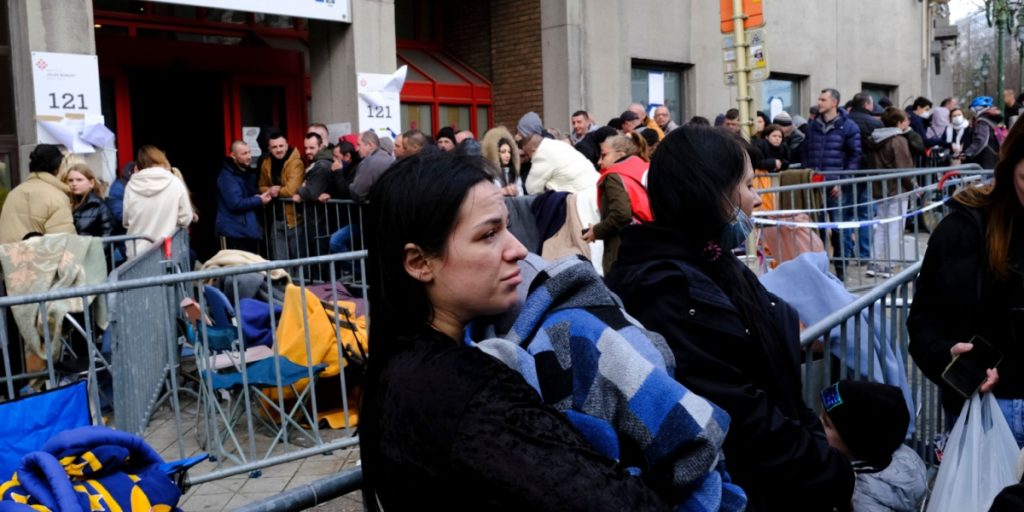After a recent terrorist attack, migrants in Russia are experiencing significant delays in getting work permits, with many facing the risk of being labeled as illegal and deported.
Others are reading now
In the wake of a terrorist attack at the Crocus concert hall in Moscow, migrants from Central Asia residing in Russia find themselves caught in a bureaucratic nightmare, facing extensive delays in obtaining necessary work permits.
This situation has led to overcrowded migration centers, with individuals waiting for days, or even weeks, to receive their documentation, a critical requirement for legal employment in the country.
Endless Waiting
In Rostov, the scene outside the migration center is one of despair, with hundreds queuing not only inside the facility but also braving the elements outside.
“There are people who stand in line for 3-4 days, there are those who stand in line for 10 days and cannot get documents,” shared an Uzbek migrant with Current Time, who preferred to remain anonymous. The efficiency of processing applications has drastically fallen, with only 50 to 100 applications being processed daily.
Also read
The situation is similarly dire at Moscow’s Sakharovo migration center, despite official claims from the Russian Ministry of Internal Affairs that the long queues depicted in videos circulating on Telegram channels are a thing of the past. Migrants contest these claims, indicating that the queues have persisted and even worsened.
Fear of Deportation
Many migrants, unable to secure a work permit timely due to these delays, find themselves at risk of being classified as illegal immigrants by Russian authorities, leading to their deportation. Reports of targeted police actions against migrants, detaining them for the lack of a patent or any minor infraction, have instilled a pervasive fear within the migrant community.
“If you go out into the street, the police immediately grab you and take you away under the pretext that you don’t have documents,” said another Uzbek migrant from Rostov.
Uzbek migrants in Rostov have reached out to their embassy, seeking intervention to expedite the patent issuance process.
Meanwhile, human rights activists, such as Valentina Chupik, argue that the current predicament is not a result of a seasonal increase in migrant numbers, as claimed by the Russian Ministry of Internal Affairs, but a deliberate strategy to exert pressure on the migrant population. Chupik refutes the notion of a migrant influx, stating, “There is no influx of migrants. This is a lie. They simply closed the windows.”
A Deliberate Campaign?
Chupik suggests that the creation of long queues and the portrayal of migrants as a “dangerous crowd” serve a narrative purpose, potentially to justify aggressive police action against migrants for domestic audiences.
This narrative comes at a time when pressure on migrants in Russia has significantly escalated following the Crocus hall attack, with Chupik receiving over 10,000 complaints from migrants about police and official misconduct in just ten days.


